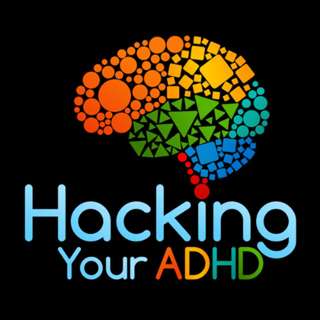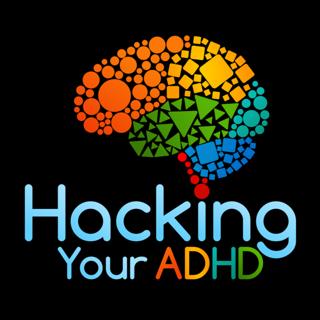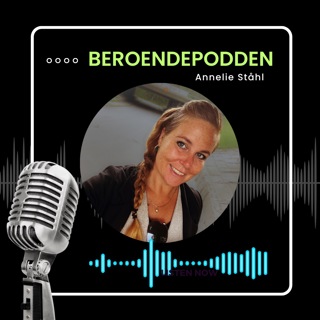
Creativity and ADHD with Saman Kesh
Today we’ve got a bit of a different episode coming your way - in this episode, I talk with award-winning director Saman Kesh. Kesh is known for his narrative music video work with artists such as Basement Jaxx, Calvin Harris, and Placebo. In our broad-ranging conversation, we talk about the creative process and having ADHD, medication, therapy, and a whole host of other topics. This episode is a bit more of the practical side of managing ADHD, and there are great tips littered throughout the episode. Support me on Patreon Feel free to ask me a question on my Contact Page Find the show note at HackingYourADHD.com/samankesh
25 Juli 202254min

Celebrating Your Wins (Rebroadcast)
I want to start this episode off by saying that this is something I'm bad at - and not in the sense that what I do to celebrate is bad or that I'm not celebrating the small wins throughout my day. It's bad in the sense that I almost entirely skip the whole thing. Recently this podcast tipped past half a million downloads. That's a pretty big milestone and is pretty indicative of how successful this endeavor has been. But it was barely a blip for me. I didn't want to acknowledge the success because it can be hard for me to acknowledge when I do things well. So this episode is as much for me as it is for all of you and in this episode, we're going to be exploring what it means to have small wins and also how we can celebrate them. Support me on Patreon Connect with me on: Facebook Twitter Instagram or ask me a question on my Contact Page Find the full show note at HackingYourADHD.com/winning This Episode's Top Tips Celebrating our wins is a way to boost our confidence and it will actively encourage us to seek out that same success again. We can differentiate intrinsic and extrinsic motivation by thinking of intrinsic as what to do because it's interesting and inherently satisfying. Extrinsic motivation comes from rewards or from avoiding punishment. Both can be important parts of how we celebrate our success. Start celebrating your wins by acknowledging when they happen and then letting yourself do something fun to celebrate that success. Don't get down on yourself when the wins aren't coming - we're not always going to have smooth sailing, but only focusing on what didn't happen tends to make us overlook all the good things that did happen.
18 Juli 202215min

Too Much
Over the last few weeks, I have hit a number of points where it all just felt like too much - now there are a number of things that have contributed to this, but one of the keys always behind when I get overwhelmed is doing too much. This is despite the fact that even when I have too much on my plate it always feels like I should be doing more. That I could squeeze in just a few more things and then… well then I’d probably also still be trying to add more things to do. In today’s episode, we’re going to be exploring why doing more isn’t usually the best thing for us to pursue and how doing less can actually help us actually accomplish the things we really want to do. Support me on Patreon Feel free to ask me a question on my Contact Page Find the show note at HackingYourADHD.com/111 This Episode's Top Tips Prioritizing with ADHD can be difficult and that is only made more difficult as we add more and more to what we’re doing. When we’re able to pare down the amount we’re doing we can then better prioritize all the things that actually need to get done. We don’t have to do everything that ends up on our to-do lists - it’s okay to cross things out even if we haven’t completed them. We only have so much cognitive capacity to focus on any given thing and the more open loops we the more we are going to be drawing on that cognitive capacity. Our best bet for dealing with open loops is to work on simply opening fewer of them by taking less on.
27 Juni 202214min

Unconventional Organisation with Skye Rapson
Hey team, today I’m talking with Skye Rapson of Unconventional Organisation, a New Zealand-based coaching group that specializes in online coaching. They focus on providing research-backed and strengths-based ADHD support to help you get unstuck in your life. In our conversation, we cover a lot of different areas, including one that I’ve really been interested in recently, systems. We get into what systems are and how important it is to tailor these systems to our own ADHD and then how we can even do that. Support me on Patreon Connect with me on: Facebook Twitter Instagram or ask me a question on my Contact Page Find the show note at HackingYourADHD.com/unconventionalorg Checkout Unconventional Organisation https://www.unconventionalorganisation.com/ https://www.facebook.com/UnconventionalOrganisation/ https://www.instagram.com/unconventionalorganisation/
20 Juni 202236min

The Wandering Mind and Hyperfocus (Rebroadcast)
One of the thoughts I kept coming back to while working on my episode's on multitasking was what it really meant to be multitasking. I settled on using the idea of doing two cognitive tasks at the same time, but that left me with another quandary - what about when I'm doing one thing and just thinking about doing something else. Surely just thinking about something else wouldn't count as multitasking. But still... There have absolutely been times when I've been thinking about something else and found myself getting engrossed in my thoughts and losing track of conversations or what I was doing. Clearly, my thoughts can play a big role in what I'm doing and if my focus is somewhere else then it certainly isn't here in the present. Today we're going to explore what our brain is doing here - how our thoughts can kind of run away with us. We'll also be looking at hyperfocus and then bringing together how these things relate. Support me on Patreon Connect with me on: Facebook Twitter Instagram or ask me a question on my Contact Page Find the show note at HackingYourADHD.com/wanderingmind This Episode's Top Tips The Default Mode Network is a collection of brain regions that are responsible for daydreaming, mind wandering and are primarily active in our wakeful resting state. In neurotypical brains the Default Mode Network disengages when we start working on task-specific work - this relationship doesn't hold up in ADHD brains and is why we can drift off in thought while trying to do complex tasks. Hyperfocus is when our concentration engages so much that we kind of just tune out the rest of the world. It can be a double-edged sword, however, because we can also miss cues to eat, use the bathroom and overuse our executive functions, and leave us completely drained when we come out of it. We can help both our default mode network and our hyperfocus by taking breaks throughout the day. We can go further by using those breaks for positive constructive daydreaming where we let our minds wander with purpose.
13 Juni 202223min

The Myth of Lazy (Rebroadcast)
In last week's episode, I talked about the Hot-Cold Empathy Gap and how it can be hard for us to really remember or predict how our state is going to affect our actions - one of the consequences of this is that we often label ourselves as lazy when we didn't do something. Our cold state brain tells us that we should have just done the thing, all the while neglecting how we felt. This disconnect is what leads to a lot of our self-judgment and in particular, those of us with ADHD often find ourselves labeling ourselves as lazy. Why didn't I walk the dogs? I was feeling lazy - or maybe I feel overwhelmed with work or maybe I couldn't find the leashes. When we don't do something it's easy to label it as lazy, but often that doesn't tell us what was really going on. Today we're going to be exploring the idea of lazy and how what we might want to start looking at it a bit differently. Support me on Patreon Connect with me on: Twitter or ask me a question on my Contact Page Find the show note at HackingYourADHD.com/lazymyth
6 Juni 202217min

Why We Make Decisions We Don't Understand (Rebroadcast)
Why do we make bad decisions in the moment? We've all done things that we regret doing right? yeah me, neither - but let's say hypothetically there was something that we regretted doing - something that we said or did that we feel like doesn't really reflect on as a person. Why is it I can have the best of intentions and still when it comes time I still make the wrong decision? Today we're going to be exploring the hot-cold empathy gap and why it can be so difficult for us to predict what we're actually going to do in the moment. Support me on Patreon Connect with me on: Twitter or ask me a question on my Contact Page Find the show note at HackingYourADHD.com/empathygap This Episode's Top Tips The hot-cold empathy gap occurs when we fail to predict how our emotions are going to affect our decision-making when we're in that state. This doesn't only apply to things like being angry or depressed but can also apply to our motivation or energy levels. Our ADHD can easily let us overcommit on projects because we fail to predict that we might have less drive and motivation when it comes time to actually do the task. We can work on mitigating some of the effects of the hot-cold empathy gap by making the decisions we want to make easier to make in the moment. We can also use tools like accountability and breaking down our tasks to keep us on track.
30 Maj 202214min

ADHD, Psychology and Finance with Rick Webster of Rena-Fi
Today I’m talking with Rick Webster of Rena-Fi - a psychology-based financial education platform. Rena-Fi provides ADHD-friendly ideas, articles, and materials to help with managing your finances. Be sure to check out Rena-Fi.com In our conversation today though, Rick and I cover a lot of ground outside of finances as well. Of course, we do talk about some ADHD financials as well, including that dreaded ADHD tax. I had a lot of fun during this interview and I hope you’ll enjoy it too. Support me on Patreon Connect with me on: Facebook Twitter Instagram or ask me a question on my Contact Page Find the show note at HackingYourADHD.com/renafi And be sure to check out Rena-fi Rena-fi Youtube Facebook Instagram
23 Maj 202243min





















